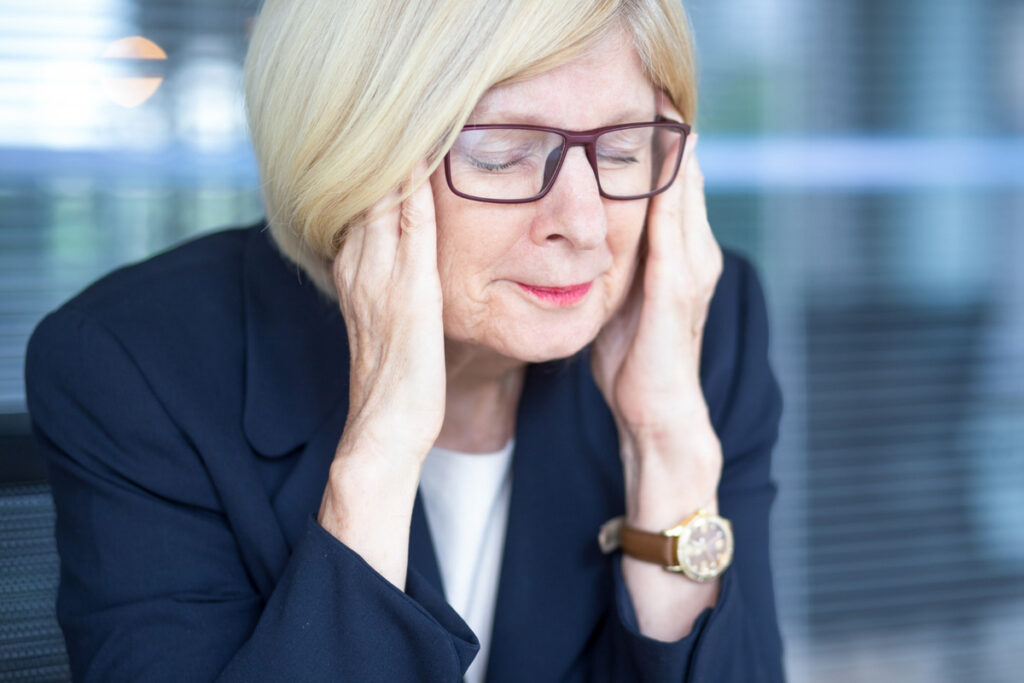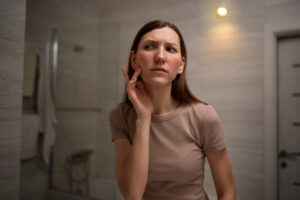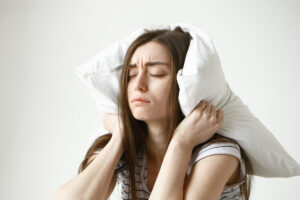Reactive tinnitus is a form of tinnitus that becomes louder or more intense in response to external sounds or environmental triggers.
Unlike constant tinnitus, which maintains a steady level of ringing or buzzing, reactive tinnitus fluctuates depending on noise exposure.
This condition can be particularly disruptive because it makes everyday environments unpredictable and difficult to navigate.
Understanding what causes reactive tinnitus and how to manage it is essential for improving quality of life.
Reactive Tinnitus: What It Is and How It Differs from Regular Tinnitus
Reactive tinnitus is distinct from regular tinnitus because its severity changes with outside stimuli.
People with constant tinnitus hear ringing, buzzing, or hissing that remains relatively stable.
In contrast, reactive tinnitus worsens when exposed to sounds such as music, machinery, or even ordinary background noise.
This fluctuation often makes it harder to manage, since patients cannot always predict when symptoms will spike.
Some individuals also experience overlapping conditions like hyperacusis, where everyday sounds feel excessively loud or painful.
These overlapping auditory issues can magnify the impact of reactive tinnitus, making it both physically and emotionally exhausting.
Common Triggers of Reactive Tinnitus
Several external and internal factors can worsen reactive tinnitus.
Identifying these triggers helps patients avoid unnecessary flare-ups.
Environmental and Lifestyle Factors
Noise exposure is one of the most common triggers.
Busy environments like restaurants, traffic-heavy streets, or loud workplaces can provoke symptoms.
Headphones, especially at high volumes, are another frequent cause of worsening tinnitus.
Sudden loud sounds, such as alarms or construction noise, may cause immediate spikes in ringing.
Even moderate but prolonged sound exposure, like background music in stores, can aggravate the condition.
Stress, fatigue, and lack of sleep also reduce the body’s tolerance for sound, increasing sensitivity.
Medical and Neurological Factors
Hearing loss is closely linked with reactive tinnitus, as the brain compensates for reduced auditory input by generating phantom sounds.
Hyperacusis, a heightened sensitivity to sound, often overlaps and intensifies symptoms.
Nerve dysfunction or damage in the auditory pathway may worsen how the brain processes sound.
Certain medications, including high doses of aspirin, antibiotics, or chemotherapy drugs, can also trigger or exacerbate tinnitus.
Underlying conditions such as temporomandibular joint (TMJ) disorders and neck injuries have been associated with spikes in tinnitus symptoms.
Symptoms and Daily Impact of Reactive Tinnitus
The hallmark symptom of reactive tinnitus is ringing or buzzing in the ears that becomes more intense after sound exposure.
Unlike constant tinnitus, this increase can last minutes, hours, or even days after the trigger.
For some, the noise may feel unbearable in loud environments, while others struggle even in moderate sound conditions.
This unpredictability often causes anxiety, as patients cannot anticipate when symptoms will worsen.
Sleep disruption is common, since heightened tinnitus can make it harder to fall asleep or stay asleep.
Cognitive challenges such as difficulty concentrating, reduced productivity, and memory lapses are frequently reported.
Emotionally, patients may experience frustration, irritability, or depression due to the ongoing disruption.
Over time, the condition can lead to social withdrawal as individuals avoid environments that might worsen symptoms.
Strategies to Manage Reactive Tinnitus
Managing reactive tinnitus requires a combination of protective strategies, therapeutic interventions, and lifestyle adjustments.
Wearing hearing protection in loud environments helps reduce the risk of sound-induced spikes.
However, complete sound avoidance is not recommended, as silence can make tinnitus more noticeable.
Sound therapy, such as using white noise machines or background music, can help mask ringing and make symptoms less intrusive.
Cognitive behavioral therapy (CBT) has been shown to improve coping strategies and reduce the emotional burden of tinnitus.
Relaxation techniques like meditation, yoga, and deep breathing exercises can decrease stress and lower symptom severity.
Maintaining a regular sleep schedule and practicing good sleep hygiene are important for reducing fatigue-related spikes.
Limiting caffeine, alcohol, and nicotine may also help, as these substances can aggravate auditory sensitivity.
Professional Treatments
Audiologists may recommend hearing aids with built-in masking features for patients with both hearing loss and tinnitus.
Tinnitus retraining therapy (TRT) combines counseling and sound therapy to help the brain adapt to the phantom noise.
Medical evaluation is crucial to rule out underlying conditions such as ear infections, TMJ disorders, or neurological issues.
Some patients may benefit from physical therapy if neck or jaw problems contribute to their tinnitus.
Natural Support for Tinnitus Relief
In addition to lifestyle strategies and professional care, natural supplements can play a role in reducing tinnitus severity.
Sonus Complete is a 100% natural supplement formulated to support auditory health and help alleviate tinnitus symptoms.
It combines vitamins, minerals, and plant extracts such as vitamin B12, niacin, garlic, hibiscus, olive leaf, and hawthorn berry.
These ingredients work synergistically to reduce inflammation, improve circulation, and protect nerve function.
For those with reactive tinnitus, Sonus Complete may help stabilize auditory processing and reduce symptom intensity.
It is stimulant-free, non-GMO, and manufactured in FDA-approved facilities, making it suitable for long-term use.
By addressing both the physical and neurological aspects of tinnitus, it provides holistic support.
Finding Relief from Reactive Tinnitus
Living with reactive tinnitus is challenging, but it is possible to regain control and improve quality of life.
With a combination of sound management, lifestyle changes, and natural support, symptoms can become more manageable.
If you’re seeking additional help beyond daily coping strategies, Sonus Complete offers a natural way to support ear health and reduce tinnitus discomfort.
To know more about the product and how it may fit into your wellness routine, visit this page.









